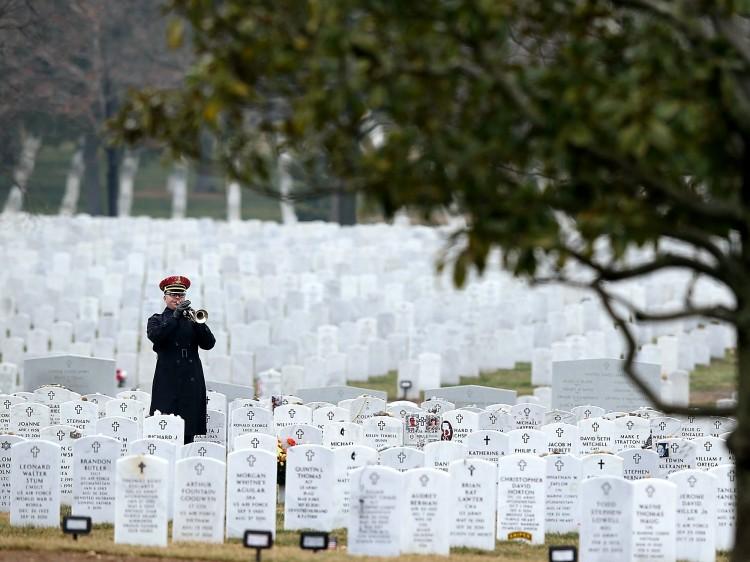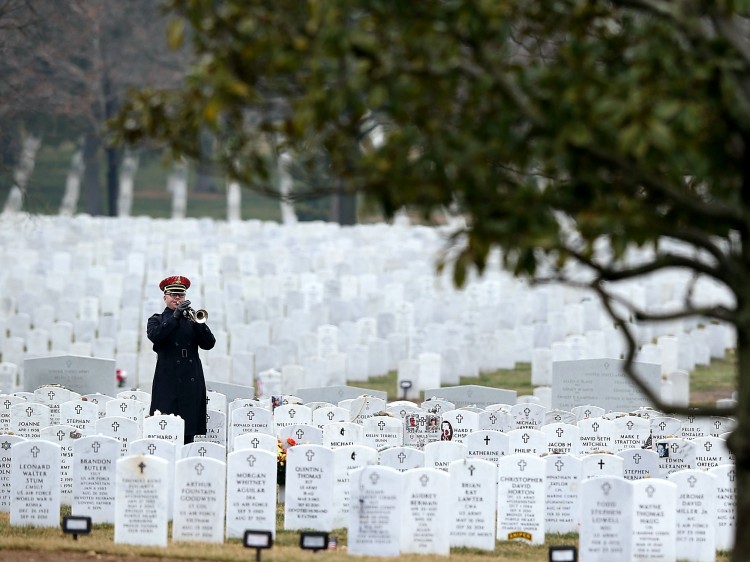New Jersey Law Addresses Right of Control
Let’s face it, family ties are not what they used to be, so a little-known New Jersey statute clarifies who is responsible for making funeral arrangements when a loved one dies.

A Bugler plays 'Taps' during the funeral of Army Sergeant Aaron X. Wittman February 8, 2013 at Arlington National Cemetery in Arlington, Va. Alex Wong/Getty Images

Arleen Richards
NTD News Legal Correspondent
|Updated:






